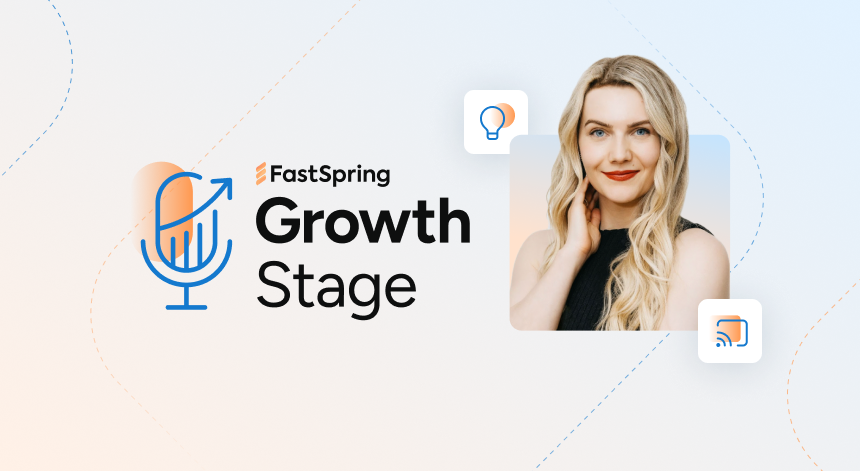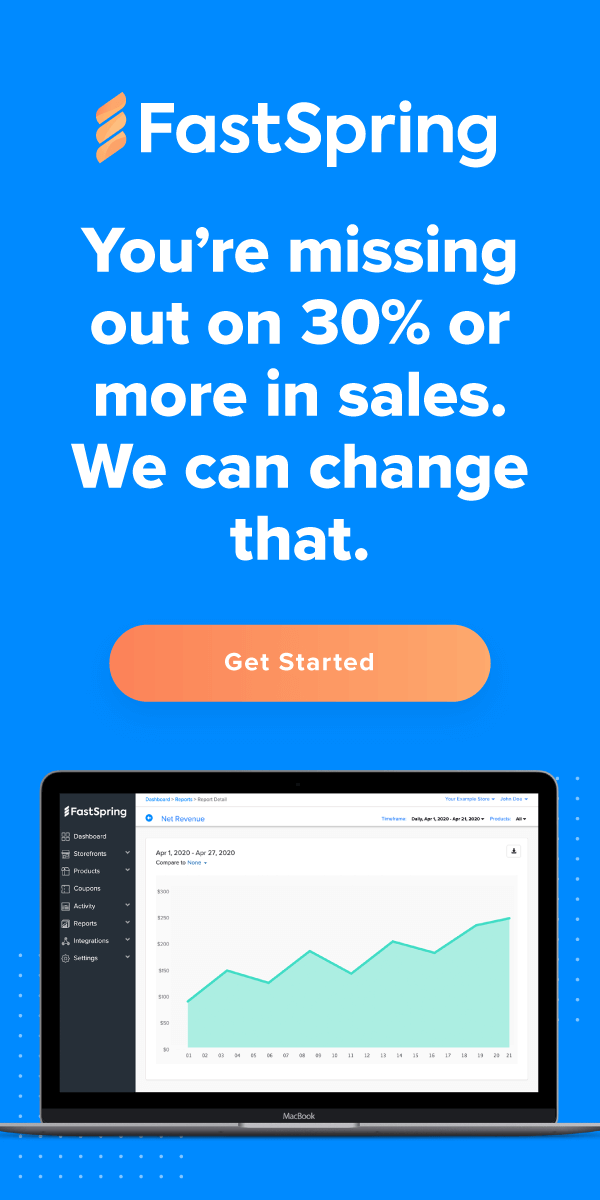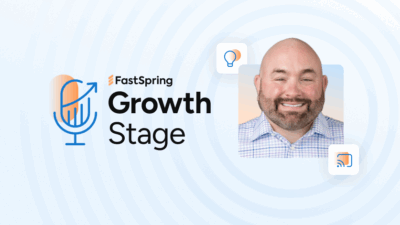If you’re running a smaller digital business, you may find it challenging to hire great talent. Larger technology companies can pay more, offer more benefits, and provide a more marketable brand on a candidate’s resume. So how are smaller companies supposed to compete with large brands for the best talent?
In this episode of Growth Stage, we interview Lizzie Mintus — Founder and CEO of Here’s Waldo Recruiting and host of The Here’s Waldo Podcast — about her thoughts on:
- The most effective recruiting strategies for SMBs.
- How to leverage community involvement and content to punch above your weight.
- Insights on why the best candidates say “YES!” to working for smaller brands.
If you’re facing challenges winning the best candidates for your roles, or if you have a small number of roles and every hire really matters, then don’t miss this episode of Growth Stage. Listen or watch now!
Note: David Vogelpohl was recently a guest on The Here’s Waldo Podcast with Lizzie Mintus to discuss authentic D2C strategies for sustainable growth in gaming. Learn more and listen here.
Jump to video. | Jump to transcript.
Podcast Full Interview: Audio
Listen online or find it on more podcast services.
Podcast Full Interview: Video
Transcript
David Vogelpohl (00:05)
Hello everyone and welcome to Growth Stage by FastSpring where we discuss how digital product companies grow revenue, build meaningful products and increase the value of their businesses. I’m your host, David Vogelpohl. I support the digital product community through my role at FastSpring and I love to bring the best of the community to you here on Growth Stage. In this episode, we’re going to be talking about how SMB digital brands can win the best talent
Joining us for that conversation is someone who knows quite a bit about that. I’d like to welcome Lizzie Mintus. Lizzie, welcome to Growth Stage.
Lizzie Mintus (00:41)
Thanks, David.
David Vogelpohl (00:43)
Awesome. So glad to have you here. And for those watching and listening, what Lizzie is going to talk about today, and Lizzie joins us from a company called Here’s Waldo Recruiting, but she’s going to share her thoughts on the most effective recruiting strategies for small and medium businesses. It’s so difficult for SMBs to compete for the best talent. And so Lizzie is going to give us some guerrilla advice there on how we can win that best talent. How to leverage community involvement to that end.
and content as well to punch above your weight when recruiting and insights on why the best candidates even say yes to working for smaller brands. I’m really curious to hear her thoughts there. So really excited to jump in here today. So Lizzie, I’m going to ask you a question. I know you focus in your business a lot on the gaming industry. Obviously it’s a big focus for FastSpring as well. But what was the first game you bought with your own money?
Lizzie Mintus (01:41)
Yes, I had a Game Boy and I bought a Mario game with my own money.
David Vogelpohl (01:49)
my goodness, what was the driver for that? Did you get like a birthday, Christmas money kind of thing and you were deciding what to buy? Had you been saving up for this particular game?
Lizzie Mintus (02:00)
Yeah, I always did odd jobs. had an allowance and yeah, I’d always figure out how to work from a young age. I was very entrepreneurial.
David Vogelpohl (02:09)
Excellent. So during the intro, I kind of talked about how you run here’s Waldo recruiting. Could you tell me a little bit about your business and what you do there?
Lizzie Mintus (02:21)
Yeah, Here’s Waldo is a boutique recruitment firm for the game and tech industry. worked, my first job ever was at Nordstrom and I worked at a recruiting agency for four years and I wanted to think about how I could make recruiting with a Nordstrom flair to it, which means you get taken care of and you feel like a person and you feel like your needs are met and you are really listened to and understood both from a candidate perspective and from a company perspective.
And as a kid, my parents always talked to me about efficiency. How can you vacuum more efficiently? How can you do this more efficiently? And I think there are many ways in which you can recruit more efficiently, which is just spending time to think about what you as a candidate want and what you as a company really want. I’m getting super clear on that. So we work with companies to first find clarity and then make a plan about how we’re going to find the person that they need. Where is this person? Is it a school?
Is it a company? Is it some kind of affiliation group where they are? And then we reach out to them and then we let companies know what candidates say so they’re informed about the market. And we work in tech, we work in games, we work in North America and Europe and we hire mid-level through executive.
David Vogelpohl (03:40)
Excellent. that efficiency angle and getting clarity, I’m guessing some of this probably plays a role in some of the questions I’ll ask you later. But it’s interesting to hear you think about that idea of setting a clear goal and its role and being efficient. And then I like the Nordstrom kind of analogy there in terms of service. It’s been a while probably since I used a Nordstrom shopper to help shop, but it’s really, it was really hands on and to your,
point like high attention and making sure you’re making the right choices. And it’s interesting to hear that you’ve used that motivation in your business.
Lizzie Mintus (04:15)
I always admired
the way that they do things. I just love high service at a restaurant, at a hotel, anywhere and being taken care of and knowing the person who is in the service role has my best interest in mind and goes above and beyond to think of me, right? When you leave the restaurant, they write a little note on your receipt and that’s easy and they bring you a mint. It’s minimal effort, but it’s just something to go above and beyond and make sure you’re taken care of.
David Vogelpohl (04:40)
That’s so cool. I have a similar story from my background. My first job inspired me on customer service as well. I worked at a grocery store as a bagger, but it was like the best grocery store chain in the city. And they prided themselves on customer service. And it was the first job I ever had. And they went me through, they sent me through this customer service training. And it was just all about kind of what you talked about, you know, respect and supporting the customer and helping the customer and always being there and just having that high standard.
Lizzie Mintus (04:46)
What was it?
David Vogelpohl (05:09)
And it just stuck with me like every job I ever had after that. It really resonated. it’s interesting to hear you talk about your backstory like that.
All right. Well, let’s kind of get to the topic at hand here. We’re talking about, course, how can SMBs hire the best talent when they’re competing with huge brands? Could you talk to me about some of the reasons why it’s so hard? Let’s get it on the table. Let’s get clarity like you were talking about earlier with recruiting. Why is it so hard for SMBs to hire the best talent when competing with big companies?
Lizzie Mintus (05:46)
Yeah, well, a big company can offer a shuttle that takes you to work and free lunch and all of the shiny things, you crazy benefits, maybe a trip to Hawaii with your whole family or a personal trainer or all these things that make people say, wow, I’ve never had this experience before. And I think people that work at two companies
big companies are truly spoiled. I mean, you listen to them, they’re like, yeah, we have that niche chocolate brand always in my office and I get to eat it every day and they do my laundry. So I think there’s that and then there’s the wow factor. And some people really value brand names. Like I work for Amazon, I work for this. And you even see people in their headline say X, yada, yada, right? X sales force, X meta. But I think it’s just…
for me from a recruiting standpoint, just about understanding what is it that you want? Do you really need to make, you know, this whatever, $100,000 a year plus plus, is that a need for you or are you living in Iowa with your cat and an apartment and like, you know, you’re not supporting your family and you don’t have seven kids and you’re in San Francisco. So I think people get wrapped up in the big company draw often.
David Vogelpohl (07:05)
So when you’re competing against this, there’s, like you said, the wow factor. And it’s, like when you tell like your parents or something where you work and they’re like, yeah, I got it. got it.
Lizzie Mintus (07:15)
Yeah, my kid
works for this. They can tell their neighbors, they can tell their friends. Yeah. Yes. Right.
David Vogelpohl (07:20)
Yeah, they understand it. And so that’s a challenge.
And then you mentioned benefits and pay as other challenges. And so as a small company, you then start to think about like, well, how can I differentiate and how can I overcome these things? Because it’s a big deal, especially if you start getting into pay. I think like, you know, maybe the free lunch at the office, maybe that is less compelling and easier to overcome.
Lizzie Mintus (07:47)
Yeah.
David Vogelpohl (07:49)
so help me understand then, and I love to kind of anchor to success when I think about strategies people can, you know, use, but when a candidate picks a small company over a large one, why do they do that?
Lizzie Mintus (07:58)
Yes.
Yeah, it happens all the time because the
small company cares about you, David, as a person. If you have the CEO, CTO, some executive chat through, here’s the big picture of the company. Here’s your impact. And you can see your impact. This is one of the major selling points to work at a small company. You have a big piece of the pie. You’re T-shaped. You get to work with a lot of different teams. Maybe you get to work with some high level executive, which at Amazon, you’re
I don’t know, 100 levels below, right? So you have exposure to people you wouldn’t otherwise. You have more ownership at a small company. And then I think it’s really just about understanding your why. Why are you looking for a new job? What are you unhappy with, candidate? Is your big company doing a return to office and you have to badge in for four hours every day to sit on Zoom with your team that lives in Virginia?
inferiority right I could personally I could never do that so oh can you know we offer more remote work I think you can offer flexibility with schedules with return to office you can offer equity and when you are a small company people don’t understand what equity is especially if you’re coming from a large company you’re like oh I had Amazon stock and it vest every so often so you could explain what the equity could be in different scenarios
And some people value that and some people don’t. And I hear a lot of startup founders, they’re like, oh, I want someone that’s so into working for equity. And I always tell them, it depends on the person and their circumstances, equity doesn’t pay for take care. And so you have to understand where the candidate is really coming from and what the most important thing, what is the most important thing to them? Is it potential for promotion? Is it a tech stack they get to work on? Is it working autonomously? Because money is one component. And for some people,
that’s the NLPL, they’re the breadwinner and they’re supporting their family and they need to make a lot. And that’s okay, right? And if you’re a small and medium business, you need to understand that as soon as possible so you don’t go so far down the path with someone whose motivations ultimately don’t align with yours, which is why you need a solid recruiter to ask the hard questions or you need to ask the hard questions right away.
David Vogelpohl (10:20)
I like how again, you’re kind of anchoring back to like, what is the person trying to achieve in their career? And you kind of rattled through a few areas where, you know, as they’re making this consideration and the hiring company is trying to think about how to position, you’ve kind of laid out some of these decision points or like reasons people would make the switch. You didn’t mention like a higher level title. I’m guessing that’s a pretty common reason. Maybe you just didn’t think of it in the moment.
Do you agree with that?
Lizzie Mintus (10:50)
Yeah,
maybe for some people. It’s all dependent on the person. As a smaller company, you can offer a larger title, but what is their five-year goal? I what is the title going to do for them? What is their next step? Yeah, or faster promotion. That could be another reason.
David Vogelpohl (11:08)
And so it seemed like though, like even if you considered say a higher title, but again, kind of to your point, you’re like trying to dial in on the person and what’s motivating for them. seemed like the theme though, if I was thinking about like, what’s like one core value of benefit of going with a smaller company or a larger company, it’s a broader impact within the organization. We talked about, yeah, being able to work with higher level executives on higher level problems.
Lizzie Mintus (11:29)
100%.
David Vogelpohl (11:36)
versus being a cog in a bigger wheel. Do you see this theme emerge consistently with your clients?
Lizzie Mintus (11:42)
Yeah, I think at a large company you’re touching one thing and it’s just a trade-off. Do you want to be really siloed? Generally, not always, but do you want to be really siloed and make a lot of money or do you want to work somewhere where your work has more meaningful impact that you can see and you have a faster, you’re moving faster at that smaller company and that’s a really personal decision for people. It’s about understanding their motivators. The other thing I think is important which goes back to the
just being intentional from a company standpoint, is getting clear about why someone would want to work for you and making sure everybody on your team is also clear. And they can have their own spin, but I think you need to be clear, what are our company core values? Where are we going? Because everyone in the interview process is going to add their own flair. And if it’s a good candidate, they should be asking the interviewer questions. And so you want to make sure that your team
is also aligned on what they’re looking for and also where your company is going. Because if they’re getting a lot of very mixed messages and you’re a super fast growing startup, you just don’t communicate, which I think is common, then that’s going to be a turnoff for the candidate. They’re like, I don’t believe in the company vision because the team is on different pages.
David Vogelpohl (12:59)
Yeah, they don’t know what they’re getting into and it’s, they’re getting mixed messages from the team. mean, obviously that’s not going to create the best candidate experience. Um, you know, and it’s really interesting. keep getting back to your, your notion of, you know, defining what people want and, following that path. I’m imagining times from my past, when I’ve worked for smaller companies, recruiting candidates, competing against bigger companies.
kind of selling the dream, you selling the impact they would have and the influence they would have at a small company over a large company. But to your point, that might not be what they’re looking for. They might be looking for actually just want to do a job and make a good amount of money and go on with my life. And maybe you might even need that for the role you’re hiring for. Maybe selling the dream isn’t even what you need. it is a trap. I can see small companies getting into is these
tropes of like I’m going to sell it this way when in reality the person you’re hiring for is looking for something different.
Lizzie Mintus (13:59)
Yes, that would be frustrating if you’re trying to the dream and someone doesn’t care about the dream and wish you’re selling. So it’s great to identify that from the start.
David Vogelpohl (14:08)
So let’s move on to the sourcing side. If I’m Google and I breathe into the wind, 500 engineers apply for my job. How do SMBs compete? How do they find the best candidates?
Lizzie Mintus (14:23)
I think having a solid website is important than a website that accurately represents your team. So if you are trying to diversify your startup and you only feature five white guys at your startup, that’s not going to be appealing for a woman or person of color to work there. I mean, this is common, you you just don’t think a lot about your website and you slammed it up at first. But I think having a compelling
about us section, you can win with your why. Here’s our why. Here’s where we’re going. Here’s our vision. Here are our values. And then another thing I love that I see small companies do is say, here’s our interview process. It’s this step, it’s this step, it’s this step, because nobody likes surprises. And with large companies, I think people have a higher tolerance for going through the ringer. We all know that large companies have some wildly long and
perhaps irrational interview processes that people do because there’s that brand recognition and they want to work there, but you don’t have that ability at a small company. So I think being really clear about the whole interview process and getting back quickly is important. And then just time kills all deals. You are not going to win on cash, but you can win on speed. You can have an efficient process that makes people feel good. And if people feel good in that process, they’re more likely to work for you. In terms of where…
You could post your job on LinkedIn. LinkedIn’s not my… I live on LinkedIn. But as from a company standpoint, I don’t necessarily love them and their pricing and lack of customer service. That’s another story. But you could post on LinkedIn. You could post on different job boards. You can post on your website. But you need to have someone who is qualified to review applicants, reviewing applicants quickly. And…
Probably, hopefully, I know there’s founder mode and that’s really trending in Silicon Valley for the founder to do everything. But I disagree, I think you should think as a small business, what is the best use of my time for my executive team? And I almost guarantee it’s not sifting through resumes. So have someone who’s qualified and competent and has attention to detail internally, externally, whatever, doing that function for you so then you can move people fast.
David Vogelpohl (16:43)
about uncommon ways of sourcing or like ways of sourcing that maybe just didn’t bring up like employee referrals and things like that. Like it sounds like obviously having a good about a section like marketable career site showing representation and other aspects that you’re maybe wanting to instill and have happen within your recruiting efforts. What are some like other ways people could think about sourcing candidates that might be helpful for them?
Lizzie Mintus (16:48)
Yeah. Yeah.
Referrals yes players refer a player so and then I think posting not on with a LinkedIn job posting to your network is great and if you’re Sourcing I mean a little bit you’re doing my job. You’re recruiting right? So who is Who do you really admire who’s in this role? Ask them who they might know and ask them to repost your post. I think that would be a great thread to go down
David Vogelpohl (17:10)
for us.
Lizzie Mintus (17:37)
And then I would think about what are similar companies and kind of get a feel for what other companies are offering. Cause you want to understand what you compete against. And a lot of times when you’re starting your search, you don’t really know, right? You’re just, putting your stuff together. You’re like, I think it might be this range. I think this might be appealing. So ask people for feedback along the way. I mean, you could go to career fairs. It depends on what level, right? You can go through schools, you can get referrals from schools if that’s what you really like.
and then you could pay attention to the news, what company announced return to office. If you’re not doing that, what company might be having financial difficulties? Maybe it’s good to rattle those cages.
David Vogelpohl (18:18)
Yeah.
of the techniques that I’ve used in the past, and I’ve had success with it, but I haven’t used it probably in a couple of years now, at least for the roles that I’ve hired for where I was the hiring manager, was a hiring manager, like pitch video for the role where they would record themselves talking about the role. And it’s funny because when I’ve done that in the past candidates would be like, I saw the video and I understand the role now. I’m like, well, talk about it. do you have success with that? And if you do, do you have success getting hiring managers to actually do this kind of.
Lizzie Mintus (18:31)
Mm-hmm.
Yeah, I think there’s great success. However, you can differentiate yourself and your job. But right now we’re in such a candidate driven market as we record early 2025. And so I think companies are putting in less effort right now because they already get applicants. But yes, I think that’s a wonderful way to do it. I even saw the best one I’ve ever seen.
I had a musically talented hiring manager who made a song that she sang about the role while she played piano and then she posted it. But that’s just incredible. You show your character, you show who you are, and the more you can show who you are, the more you’re going to attract the right person. So I think it’s great to make your job description a little less appealing to everyone, but appealing to the right person. Here’s what it’s really like. Here are our values.
I don’t want to put the good part or the ugly necessarily in your job description, but I think you should make it unappealing for people who wouldn’t match your values.
David Vogelpohl (19:52)
That’s such a good point, especially in an environment that’s candidate rich, right? is like just really setting those guidelines of what good looks like. That’s great advice. So let’s talk about now later in the process. We’ve gotten the applicants, we filtered through them, we’ve got it down to our last candidate, we’re ready to send an offer letter, and Google sent them an offer letter as well. So now we’re competing. What are your…
favorite approach is to try to close someone in this situation. Is it just the groundwork you laid before and hope for the best? How do you think about those last days and moments in trying to get that candidate to close and choose the smaller company over the bigger one?
Lizzie Mintus (20:36)
I think it depends on if the smaller company aligns with their goals or not. Like I think even when I worked at Nordstrom, I’d be like, hey, that shirt doesn’t look good on you. Let’s find a new shirt. And people are like, oh, because they’re not used to hearing that. So I think you really just have to be honest with yourself. Of course you want this person to work for you. But if you get the wrong person who actually wants to work at Google, they’re not going to last. So you should have figured this out long before and closing.
is not at the end. Closing is from the beginning. Closing is the whole process. Closing is before the final interview. Like, hey, what are your other interviews? How are you weighing those? What questions do you have? What concerns will you have? What will you do if XYZ happens? So yeah, it’s always scary. It’s like an shit moment, you know? Like, no, big company with this big scary offer. And that happens and that’s okay. So I think it’s just about understanding.
really the motivations and making sure that the candidate is clear and reminding them of what they said in the past. And also ideally understanding who else might be making a decision because it’s not always, it’s not just the candidate, right? It’s the candidate and their family. So I’ve talked to a wife before and one time a candidate is like, why don’t you just talk to my wife? Like, let’s say me in the middle of it and you can just talk to my wife. So I’m like, all right, I appreciate the efficiency.
Yeah, but I think just reminding them of who you are and the bigger vision. And what I love is when a CEO, whoever the executive person is, who’s appropriate, given the size of your company, if it’s 20 people, a CEO is great, but as you scale, it’s maybe not the CEO or maybe it still is. But there’s a lot of power in a really high level of executive saying, hey, David, I want you to work here.
I want you to work here because I see this in you and I see that you can grow in this way and you can become this at my company. And that is a competing factor Google doesn’t have. Google’s like, hey, where’s your offer from whatever recruiter, like maybe a contract recruiter. It’s not as compelling except for the Google factor. So I think you can win with like the heartfelt, we want you as a person here. But I would only do that tactic if you think, you know, the candidate is actually going to be happy working for you and they don’t want that big company.
David Vogelpohl (22:36)
Thank you.
Yeah, I love that idea of like kind of this judo move of using your weakness as your strength, like your smallness is your weakness, but using that for that personal touch and that, you know, showing care and connection with people there in those kind of last few days and moments. And then kind of re anchoring to like make the best decision for you. We want the best candidate in this role.
means that it’s the best decision for them. So if this isn’t for you, maybe Google is the right choice.
Lizzie Mintus (23:25)
Yeah, that’s okay.
Hopefully you find that out before and sometimes they get wowed in the end. And if they do, mean, maybe they’ll go to Google and decide, I am a cog in the wheel and I don’t like it and I’m going to time it with the stock vest, but I’m going to leave. And then if they had a good experience with you and you got back to them quickly and you were respectful and you sent them a night’s snow, even if they declined, then they will reach out to you when they get laid off or decide they don’t like it. Or maybe they stay at Google and then it’s not your person anyway.
David Vogelpohl (23:52)
Or maybe they have a friend.
Lizzie Mintus (23:54)
That’s a great strategy. Yeah. Hey sounds seems like it didn’t work out for you. We loved you. Who do you know?
David Vogelpohl (24:00)
Awesome. My next question then to shift gears a little bit. You do such a good job, I feel, with engaging with communities and producing content and things like that that help you with the efforts for your business. How should people thinking of recruiting candidates think about community engagement and content?
Lizzie Mintus (24:26)
Yes, I think different generations care about different things, but it’s important now more than ever, especially when the economy flips again, which it will, right? Just prepare for that. But to be strong and be vocal about what organizations you support. So I think showing that and those affiliations is a wonderful way.
to go. So what events do you go to? Maybe I mean, I think it’s a great thing to think about in general, what greater good can I do from a company standpoint? Like for me, be it Women and Games or Black Girls Code or all these organizations, right? Who can I get involved with that is meaningful? And then I, if I’m firm believer, just put good out into the universe and it will come back to you.
David Vogelpohl (24:55)
So, thank you.
Lizzie Mintus (25:18)
So I think that’s great. Or you could pay for someone to go to a conference. Like you could do all these little things. But yeah, again, all the little things come back to you.
David Vogelpohl (25:20)
That’s a good one.
I mean, like in this could see, I don’t know, kind of harder and easier and bigger companies, but like, obviously the professional communities they’re hanging out with as well. Right. Like, I don’t know if they’re a developer and they’re, you know, coding in a specific language, you know, developer groups and meetups and things like this. this part of your strategy? this strategy you think that smaller companies should employ?
Lizzie Mintus (25:47)
Yeah.
Yeah, I think especially now with AI, there so many garbage messages and people are so tired of being solicited to and sold to and advertised to all the time. So that’s a great way to go. Go somewhere, meet people, but you’re not going to go there. I mean, maybe you’re going to go there and meet someone. I think that’s a great way to go. But it might not be that transactional, you know, you might go there and then maybe you’ll volunteer there and put in some work.
But I have a friend who organizes community meetups in the Seattle area, and he has hired a good amount of his team from people that have showed up there that he has gotten to know, and he has recruited them himself that way. And that’s a great way to go. It’s authentic, and you really know the person a little bit better, too, that you’re hiring, because you’ve met them in real life, just not on Zoom. It’s more organic.
David Vogelpohl (26:41)
Yeah, that’s a, feel like a really bold small company and hiring manager to, become actively involved and play this long game, but to get the most value out of communities. found that to be true is that it’s a, it’s a long game effort, but it can have a huge payoff in terms of, you know, the quality of the people that you can get connected with over time. I’ve, I’ve been a big fan of it. I’ve had transactional things. I had an agency back in the day and I remember we.
needed to hire PHP developers and for the cost of like, I don’t know, beers at one meetup, we got a huge exposure and we’d get like candidates like during that meetup kind of thing. so I do think there is a transactional element to it, but I agree with you that it’s more of a long game play.
Lizzie Mintus (27:27)
Yeah, it’s a great way to go.
David Vogelpohl (27:30)
Awesome. Um, any other golden tips you want to mention before we kind of wind it down here? I’m sure you have a wealth of information you could share, but what’s the one thing you want to kind of finish up on to make sure you remind folks of is they’re competing for these, you know, best candidates when they’re a small business.
Lizzie Mintus (27:50)
Yes, have all the hard questions ready up front. Think about those. I have so many hiring managers who say, yeah, I have this amazing applicant from whatever, Nvidia, know, some really large company that pays a lot and they’re in the process and we’re doing it ourselves. I’m like, okay, have you talked to them about comp.com? Do you understand their motivation? No, we’re thinking we’re going to save that till the end. You know, so every, when you’re a small company, your team’s time is
everything. You need to have your team focused on creating your product, finding product market fit, doing well, getting that out the door, and interviewing is a huge distraction. So do all of the hard work upfront to give yourself clarity and to give your team clarity and to get clarity from the candidate that you are interviewing if they’re going to be the right fit potentially or not because you will save yourself and your team time and your time is money.
David Vogelpohl (28:48)
Excellent. Well, that’s a great thought to end on. Thank you so much for joining the interview today, Lizzie. Awesome. Thanks everyone else for watching and listening. If you’d like to learn more about what Lizzie is up to, of course you can find her on LinkedIn. You can also visit hereswaldorecruiting.com. Thanks everyone for joining us today. Again, I’m David Vogelpohl. I support the digital product community through my role at FastSpring and I love bringing the best of the community to you here on Growth Stage.
Lizzie Mintus (28:53)
Thank you.
![[Customer Story] Why TestDome Considers FastSpring a Real Partner](https://fastspring.com/wp-content/themes/fastspring-bamboo/images/promotional/2023/FastSpring-TestDome-blog-thumbnail.jpg)










